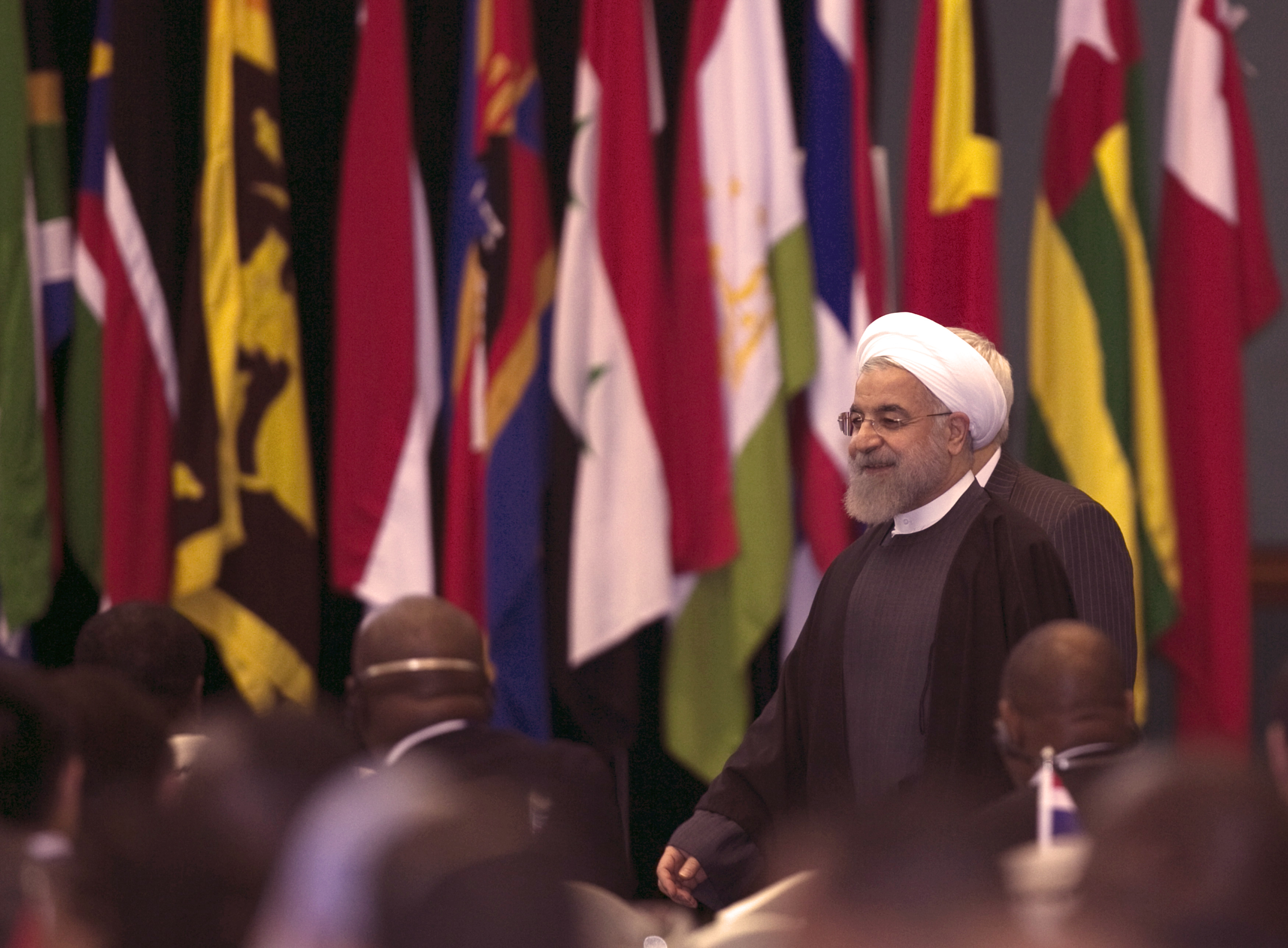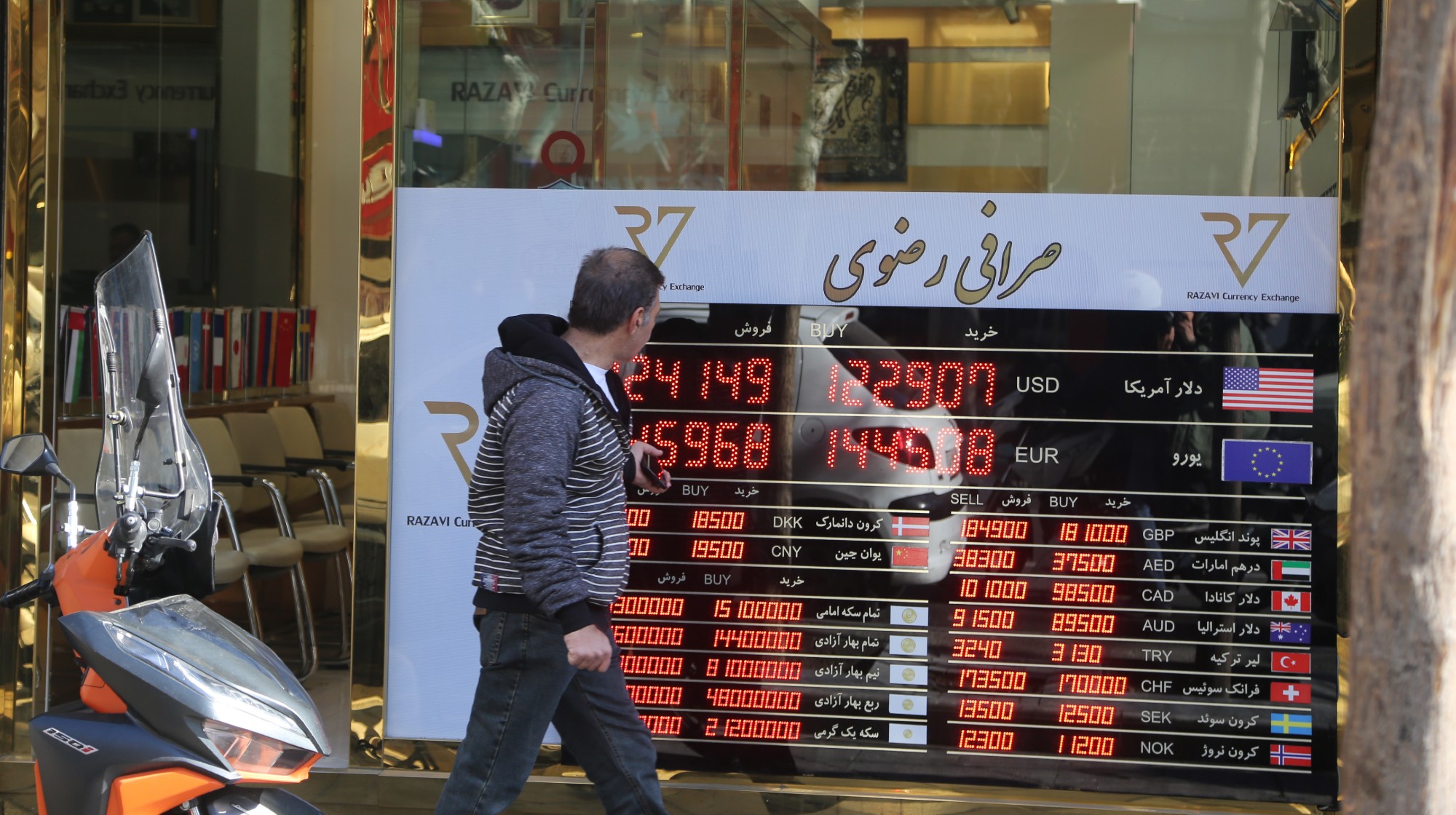Republicans have few good options left on the Iran nuclear deal
"Give War a Chance" is a lousy motto for 2016


Republican presidential candidates and members of Congress have been warning about the hard-fought Iran nuclear deal for more than a year, using just about all the tools in their arsenal (up to and including hosting a controversial speech to Congress by Israeli Prime Minister Benjamin Netanyahu and writing Iran's leaders) to sink the landmark agreement.
But the GOP's best bet was always that the deal would fall apart under its own weight or get scuttled by outside forces before it could be finalized. That hope — not an irrational one — was dashed early Tuesday.
Iran, the U.S., Russia, China, Britain, France, and Germany are signing the landmark Iran nuclear agreement on Tuesday, committing Tehran to mothballing much of its nuclear infrastructure and ridding itself of almost all its potential weapons-grade uranium and plutonium. In return, sanctions on Iran's oil and arms trading will be lifted and some $100 billion in assets locked up by the U.S. will be unfrozen.
The Week
Escape your echo chamber. Get the facts behind the news, plus analysis from multiple perspectives.

Sign up for The Week's Free Newsletters
From our morning news briefing to a weekly Good News Newsletter, get the best of The Week delivered directly to your inbox.
From our morning news briefing to a weekly Good News Newsletter, get the best of The Week delivered directly to your inbox.
The deal was at least 20 months in the making, and it nearly did fall apart numerous times. It still faces some final hurdles, mostly the political task of selling the accord to skeptics in Iran, the U.S., Saudi Arabia, and Israel. But once Russia, China, the U.S., France, Britain, and Iran sign on to a 100-page agreement, the die is pretty much cast.
Republicans are talking big about sinking the deal in Congress, which now has 60 days to approve or reject the agreement. And President Obama "clearly does not want the biggest diplomatic achievement of his presidency to turn into yet another political melodrama," says David E. Sanger at The New York Times. But when push comes to shove, "the numbers suggest Mr. Obama will prevail; if Congress rejects the Iran accord, he could veto their legislation, and he has enough Democrats to win that contest."
That leaves Republicans trying to win the public-relations game. Their main arguments so far are that you can't trust Iran, that the agreement only delays Tehran's alleged nuclear weapons ambitions for a decade rather than destroying them, and that in the meantime Iran will use its financial windfall to ramp up its conventional weaponry and increase its support of anti-Israel and anti-Sunni militant groups in the region.
Those aren't terrible arguments. But if given the choice between a decade to 15 years of a verifiably rolled-back Iranian nuclear program plus an accounting of Iran's nuclear history, or no real checks on Iran's nuclear program and an increasingly bellicose relationship between Tehran and Washington, a war-weary U.S. public could be forgiven for wanting to give peace a chance.
A free daily email with the biggest news stories of the day – and the best features from TheWeek.com
"The reality is that it is a painful agreement to make, but also necessary and wise," says R. Nicholas Burns, the George W. Bush–era State Department official who helped push through the first Iran sanctions at the U.N. Security Council in 2006 and 2007, in The New York Times. "And we might think of it as just the end of the beginning of a long struggle to contain Iran. There will be other dramas ahead."
Still, Republicans do have one decent shot left at causing Obama's historic diplomatic achievement to come unglued: Carefully calibrated political spitballs aimed not at Washington but Tehran.
"The technical obstacles can be surpassed with goodwill and diligence, but political hurdles can turn into poison pills," Ali Vaez, senior Iran analyst at Crisis International, tells The Wall Street Journal. "Neither Iran nor the U.S. has ever implemented such a complex quid pro quo. In an atmosphere of mistrust, misunderstandings are inevitable — thus the need for preserving the positive diplomatic momentum even after the deal is sealed."
"Give War a Chance" is a pretty lousy 2016 campaign slogan. But if Republicans play their cards right, they won't have to win over the American public at all in this fight.
Peter has worked as a news and culture writer and editor at The Week since the site's launch in 2008. He covers politics, world affairs, religion and cultural currents. His journalism career began as a copy editor at a financial newswire and has included editorial positions at The New York Times Magazine, Facts on File, and Oregon State University.
-
 Why is Iran facing its biggest protests in years?
Why is Iran facing its biggest protests in years?TODAY’S BIG QUESTION Iranians are taking to the streets as a growing movement of civic unrest threatens a fragile stability
-
 How prediction markets have spread to politics
How prediction markets have spread to politicsThe explainer Everything’s a gamble
-
 Magazine printables - Dec. 19, 2025
Magazine printables - Dec. 19, 2025Puzzle and Quizzes Magazine printables - Dec. 19, 2025
-
 Bari Weiss’ ‘60 Minutes’ scandal is about more than one report
Bari Weiss’ ‘60 Minutes’ scandal is about more than one reportIN THE SPOTLIGHT By blocking an approved segment on a controversial prison holding US deportees in El Salvador, the editor-in-chief of CBS News has become the main story
-
 Has Zohran Mamdani shown the Democrats how to win again?
Has Zohran Mamdani shown the Democrats how to win again?Today’s Big Question New York City mayoral election touted as victory for left-wing populists but moderate centrist wins elsewhere present more complex path for Democratic Party
-
 Millions turn out for anti-Trump ‘No Kings’ rallies
Millions turn out for anti-Trump ‘No Kings’ ralliesSpeed Read An estimated 7 million people participated, 2 million more than at the first ‘No Kings’ protest in June
-
 Ghislaine Maxwell: angling for a Trump pardon
Ghislaine Maxwell: angling for a Trump pardonTalking Point Convicted sex trafficker's testimony could shed new light on president's links to Jeffrey Epstein
-
 The last words and final moments of 40 presidents
The last words and final moments of 40 presidentsThe Explainer Some are eloquent quotes worthy of the holders of the highest office in the nation, and others... aren't
-
 The JFK files: the truth at last?
The JFK files: the truth at last?In The Spotlight More than 64,000 previously classified documents relating the 1963 assassination of John F. Kennedy have been released by the Trump administration
-
 'Seriously, not literally': how should the world take Donald Trump?
'Seriously, not literally': how should the world take Donald Trump?Today's big question White House rhetoric and reality look likely to become increasingly blurred
-
 Will Trump's 'madman' strategy pay off?
Will Trump's 'madman' strategy pay off?Today's Big Question Incoming US president likes to seem unpredictable but, this time round, world leaders could be wise to his playbook
